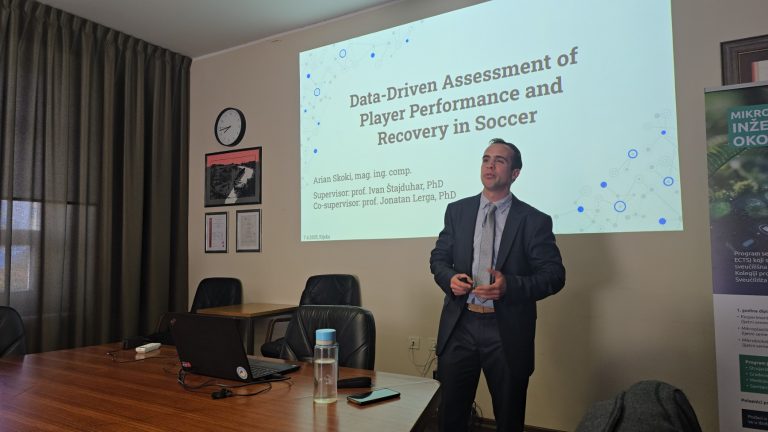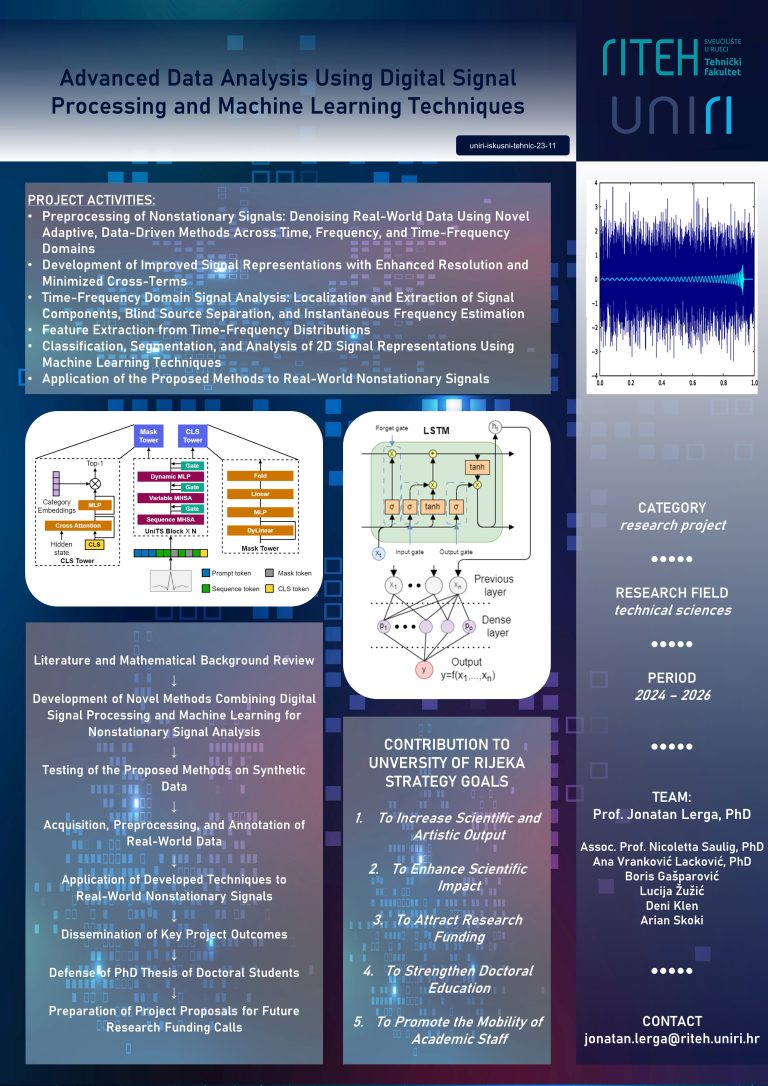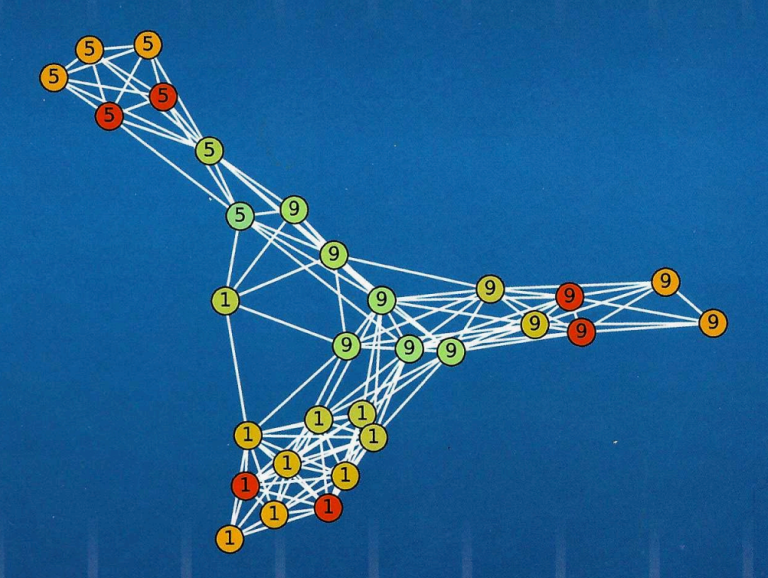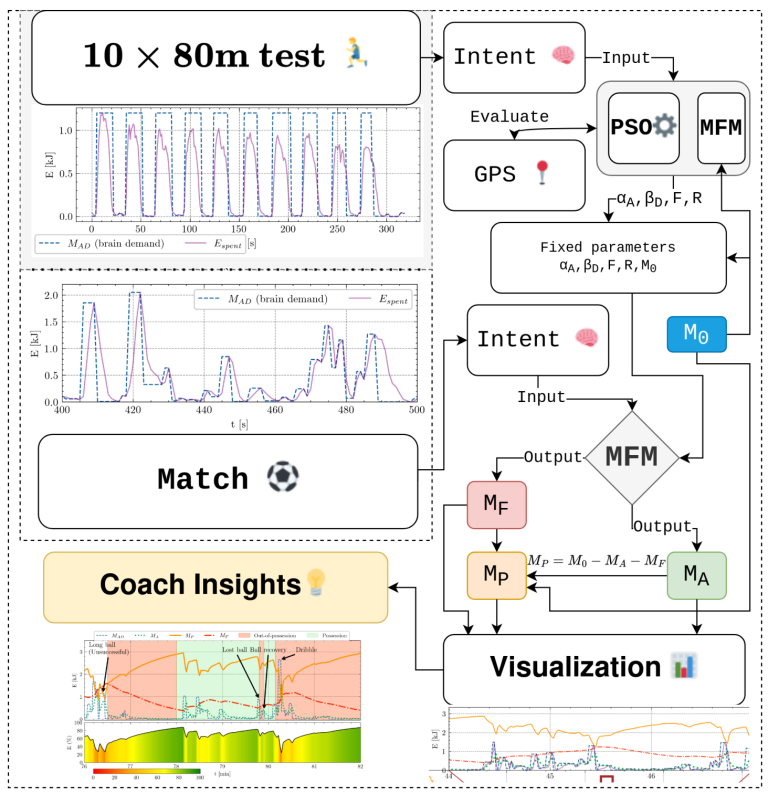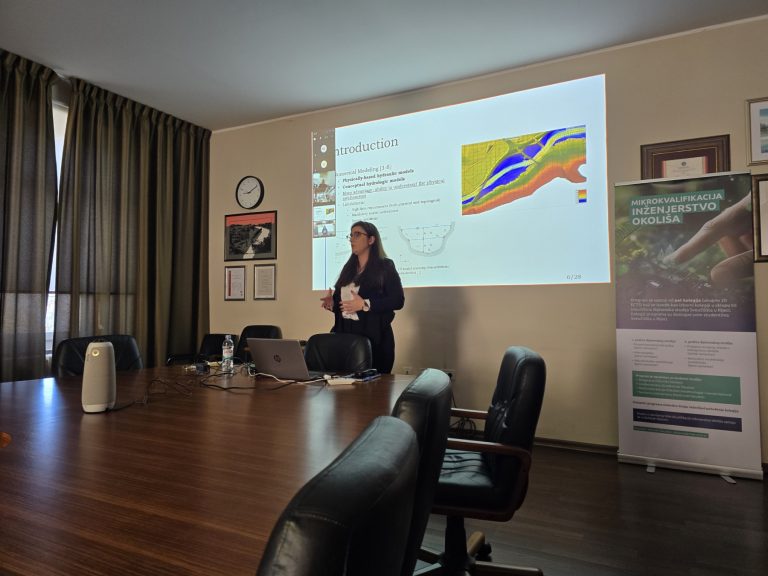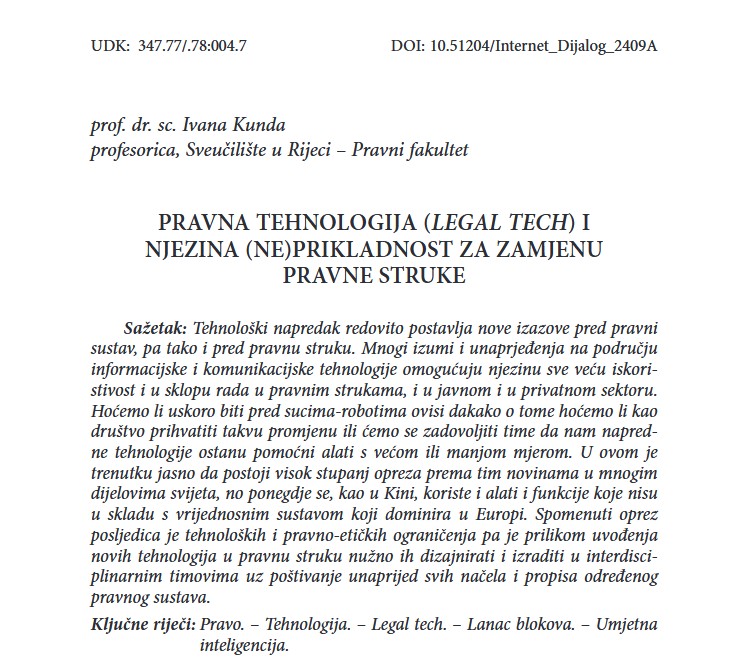Arian Skoki successfully defended his doctoral thesis “Data-Driven Assessment of Player Performance and Recovery in Soccer” (Procjena karakteristika i oporavka igrača u nogometu zasnovana na podatcima) on April 7, 2025. His research introduces innovative approaches to soccer analytics by leveraging minute-by-minute wearable sensor data, cognitive load measurements, and machine learning to uncover new insights into player fitness, […]
News
Advanced Data Analysis Using Digital Signal Processing and Machine Learning Techniques
This project focuses on processing real-life digital signals (time-series and images), which often exhibit a non-stationary nature. We plan to utilize advanced signal processing techniques and artificial intelligence to analyze and classify such data. The project envisages the transformation of time-series into images (time-frequency representations providing simultaneous insight into signal characteristics in both domains). Special […]
Compound Flooding in Coastal Rivers in Present and Future Climate
The subject of this project is compound flooding in coastal areas due to high sea and river levels. Compound flooding is a global research priority due to the increasing occurrence in the context of climate change. The problem of compound flooding in coastal rivers is challenging because of a complex interaction between several factors, including […]
Data Processing on Graphs
Big data and the ever-growing need for their fast and efficient processing, aimed at obtaining information used in the automation of business processes, improving communication, enhancing efficiency and success in practically every segment of human activities, as well as better understanding of nature, humans, and society, are some of the main characteristics of computer technology […]
North Adriatic Hydrogen Valley
The aim and main objectives of the NAHV The project’s main goal is the creation of a hydrogen-based economic, social and industrial ecosystem based on the capacity of the quadruple helix actors. This will drive economic growth, generating new job opportunities within the framework of both the green and digital transitions and, by creating the conditions […]
Data Governance and Intellectual Property Governance in Common European Data Spaces – DGIP-CEDS
The development of common European data spaces is the bedrock of the future European data economy, which could bring huge benefits, but also poses significant challenges and risks. Hence, it is vital to perform research on how common European data spaces should be governed by appropriate rules. DGIP-CEDS aims to map, analyse and further develop […]
Enhancing Biophysical Muscle Fatigue Model in the Dynamic Context of Soccer
In the field of muscle fatigue models (MFMs), the prior research has demonstrated success in fitting data in specific contexts, but it falls short in addressing the diverse efforts and rapid changes in exertion typical of soccer matches. This study builds upon the existing model, aiming to enhance its applicability and robustness to dynamic demand […]
Anna Maria Mihel defended her PhD dissertation topic
PhD student Anna Maria Mihel, mag. ing. comp. has defended her PhD dissertation topic entitled “Estimation and prediction of discharges in tidal rivers and estuaries using machine learning” with expected scientific contributions of the proposed research being: A machine learning-based approach for estimation and prediction of water levels and discharges in tidal rivers and estuaries. […]
Prof. dr. sc. Renato Filjar participated at the meeting of the 31st National Space-Based Positioning, Navigation and Timing US Advisory Board
Prof. dr. sc. Renato Filjar, as a representative of Croatia, participated at the 31st National Space-Based Positioning, Navigation and Timing US National Advisory Board Meetingat the Sonesta Redondo Beach, Redondo Beach, California, USA (https://www.youtube.com/watch?v=zWwuq6jIIE4&t=6834s)
